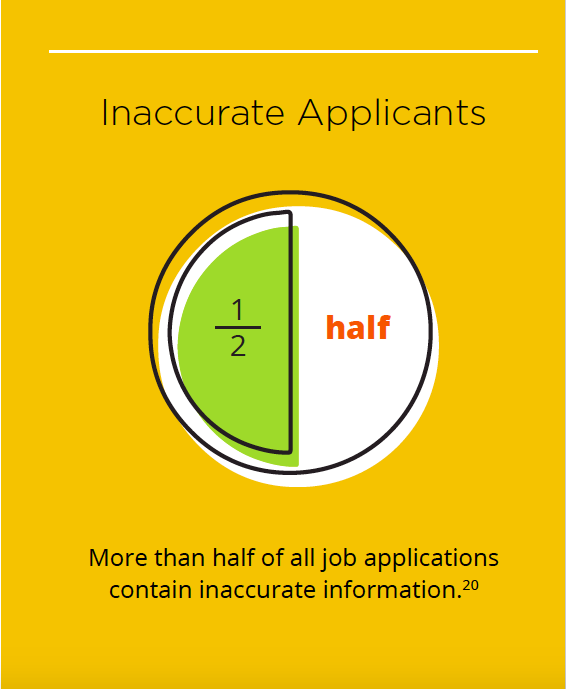If you’re a recruiter or hiring leader who likes to the think of the interview as the first date, then you should probably look at prescreening as your opportunity to quickly and easily get some of those obvious and very telling questions out of the way before you’re sitting across from each other, face-to-face.
Sounds like a useful technique, right. Rather than waste time scheduling a phone or in-person interview with a candidate only to find out in the first minute that there are a few deal-breakers on the cards, you can use a series of electronic questions to find out the information you need.
On the flip side, what if you ask the wrong questions – or your line of questioning scares away a coveted purple squirrel (that job candidate who’s just the perfect fit)?
So, it’s not so simple then. Should you or should you not use prescreening? And if you do, how should you go about making sure you’re abiding by best practice.
What is Prescreening?
Prescreening is an additional step added between the application process and the resume review by recruiters.
Prescreening involves setting up a series of questions that each applicant must answer; the idea is to drill down to the key facts you need to know about the applicant to decide whether s/he is qualified for the open position.
Prescreening does not involve psychometric or personality testing, which sometimes comes later. Prescreening is purely an effort to narrow the field to just the candidates that truly qualify based on your ideal candidate profile.
Why Prescreen?
There are many reasons recruiters use online prescreening; let me take you through the most common.
- Eliminating Unqualified Applicants. We know that many jobseekers still use a shotgun approach to job hunting, applying to a large number of job postings – even those they know do not match their actual qualifications. Research by the Wall Street Journal has even proposed that over 50% of jobseekers are not qualified for the jobs for which they apply. Furthermore, numerous studies have documented that a healthy percentage of jobseekers tend to stretch the truth on their resumes. Prescreening questions can be an easy way to eliminate applicants who lack key skills and experiences.
- Focusing on Core Requirements. A side benefit of developing an online prescreening interview is that it forces us, as hiring leaders and recruiters, to identify – and quantify – the core elements of the ideal candidate, which will automatically lead to a better field of applicants.
- Weeding Out Uninterested Applicants. Just the extra step of asking candidates to complete the online prescreen will eliminate those who are ambivalent about the role. Furthermore, often as part of the prescreen, you can ask questions about the applicant’s willingness to complete other stages of the interview process (e.g., drug-testing, background checks, psychometric testing). This can save you valuable time, as you’ll know from the get-go which candidates are open to moving forward with your hiring criteria and which are not.

Developing Prescreening Questions
Most experts suggest developing 6 to 8 questions for the prescreen; more than eight questions tends to cause applicant fatigue and response drop-off.
The most important place for recruiters to start developing prescreening questions is with a detailed profile of the ideal candidate.
So, for example, if you need to fill a manager of financial planning and analysis position that requires at least 5 years of financial accounting experience, sound understanding of GAAP and Sarbanes-Oxley rules, strong knowledge of SAP, and a minimum of a bachelor’s degree in accounting or finance, some of the prescreening questions could be designed this way:
- How many years of full-time financial accounting experience do you have?
- Under 5 years [deal breaker/knockout]
- 5-6 years
- 7 or more
- Do you completely understand GAAP and Sarbanes-Oxley rules?
- Yes
- No [deal breaker/knockout]
- Do you have an accredited degree in finance or accounting?
- No [deal breaker/knockout]
- Yes; bachelor’s degree
- Yes; Master’s degree
- Gauge your experience and knowledge of SAP and key accounting/finance modules:
- Extensive experience (3+ years working with SAP)
- Moderate experience (2-3 years working with SAP)
- Limited experience (1-2 years working with SAP) [deal breaker/knockout]
The key to developing good prescreening questions is identifying the right questions to ask and scoring them properly. For example, in question 1, you actually might score the 7 or more years lower than the 5-6 years because someone with too much experience might be overqualified and not a good fit for this position.
Of course, you can also add questions not directly tied to the job, but to the work environment or the type of worker you seek, asking questions about work ethic, working in teams, and availability (for interviewing, travel, etc.).
Will Prescreening Help You Hire More Effectively?
The simple answer: Yes, but with some risks.
Benefits of Prescreening: You can drastically reduce the applicant pool by weeding out unqualified applicants, making the interviewing and hiring process more effective and efficient. Recruiters and hiring leaders can save both time and money, and it means they can focus more on the best-qualified candidates.
Drawbacks of Prescreening: You risk losing highly qualified candidates who view the prescreening questions as below them and/or too time-consuming. And while prescreening questions will eliminate the unqualified applicants, it does little to truly rank and identify the most qualified. Not to mention, if you poorly develop your prescreening questions or scoring system, the applicant pool can be skewed in the wrong way.
What should you do? I would go with a prescreening interview, but only after carefully identifying those 6 to 8 key qualifications you are seeking in an ideal candidate – and then pre-testing the scoring system to make certain you are not eliminating qualified candidates. Finally, I would also add a personal component to attract candidates known personally who might not apply or follow through with the online screening process.
 MightyRecruiter
MightyRecruiter




Leave a Reply